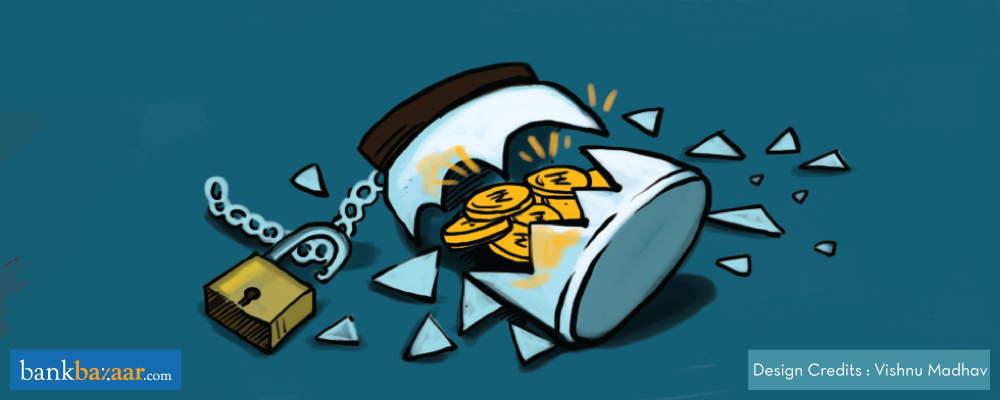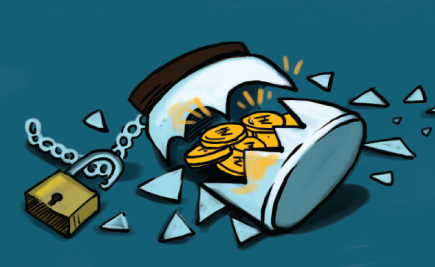
In India, Fixed Deposits are a popular means of investment. One of the major reasons behind the never-fading popularity of FDs is the fact that it earns you a good rate of interest and is extremely secure.
Though you may not always want to withdraw or close your Fixed Deposit account before its maturity, there could be a sudden emergency or financial crunch which can make you consider this option.
At the same time, you also need to think about early withdrawal charges. Is it really advisable to close your FD account or do you have other options for solving your financial crisis?
Let’s consider all these factors and try to decide what the best options are. Okay? But first, let’s properly understand what a Fixed Deposit is.
What’s a Fixed Deposit?
A Fixed Deposit is a bank savings account which gives you a fixed rate of interest for a fixed tenure. It helps you earn a higher rate of interest than your Savings Account. Also, you can choose to open a Fixed Deposit for a tenure of 7 days to 10 years.
While the interest earned from your FD account is taxable, it is possible to claim tax benefits under Section 80C with your Fixed Deposit account. The interest can be compounded monthly or annually and also either be received monthly or at maturity.
What does breaking a Fixed Deposit mean?
In simple words, breaking a Fixed Deposit account means withdrawing the entire sum of money before its maturity. This is allowed from time-to-time and the withdrawal rules may vary from one bank to another.
Why would you break your FD?
In most cases people close a Fixed Deposit account to handle a financial emergency. But sometimes, people choose to close their FDs to take advantage of a higher rate of interest that’s being offered by another bank. Keep in mind, this makes sense only if your FD account is fairly new.
In order to discourage people from closing their FD accounts before maturity, banks usually charge a penalty fee on the applicable interest rates.
What is a premature closure penalty?
Most banks charge about 0.5-1% as penalty for the premature closure of Fixed Deposits. However, some banks may choose to waive this penalty under certain circumstances / special cases. Some banks may also choose to waive off the penalty if you are reinvesting the amount in the same bank. So, the premature penalty charges vary from case-to-case.
On the other hand, some banks do not allow premature closure of Fixed Deposits, while some others have a specified tenure before which you cannot close your FD account.
If you close the Fixed Deposit account before maturity, the applicable interest rate will be that as of the date of deposit, only for the period for which the deposit has been with the bank. Premature penalty charges will, of course, apply.
Alternatives to Fixed Deposit closure
In case of a financial emergency, instead of choosing to close your FD account, you can opt for these alternatives:
- Partial withdrawal
You can withdraw a certain amount of money from your account. This is referred to as a partial withdrawal. Partial withdrawal is allowed in units of Rs. 1,000 and a penalty of 1% is levied. The balance amount continues to earn the original rate of interest.
- Loan against FD
Instead of liquidating your FD account to fund your emergency, you can choose to take a loan against your FD account. Most banks offer loans against Fixed Deposits at attractive and lower interest rates than Personal Loans or Credit Card loans. You can usually get up to 70-80% of your FD’s value as loan and repay the same in easy monthly payments (EMIs).
Additional Reading: 7 Reasons Why FDs Are Better Than Savings Account
So, do your calculations correctly and think twice before you close your FD account as the guaranteed returns on maturity are usually too tempting to forsake! And don’t forget the additional penalty charges!
